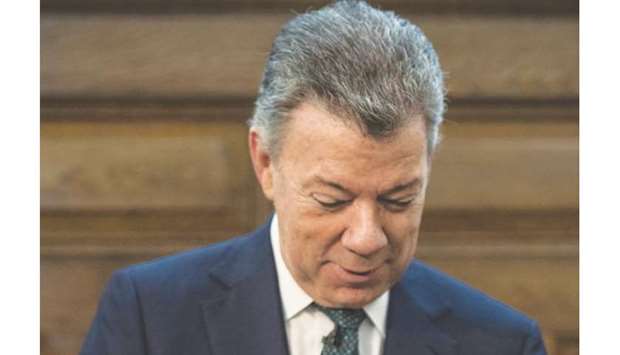Colombia’s
President Juan Manuel Santos yesterday hailed his country’s peace deal
with the Farc guerrilla group as a chance to preserve his country’s
biodiversity after decades of violence.
“We need to reconcile also
with the environment, which was a big victim of the armed conflict,”
Santos said after receiving an international environmental award from
the Kew Royal Botanic Gardens in London.
“The number of barrels of
oil that we’ve spilled in our rivers, in our seas, was the equivalent of
14 times the Exxon Valdez. And that was a huge environmental disaster,”
he said, referring to the 1989 oil spill in Alaska.
The peace accord signed with the Revolutionary Armed Forces of Colombia (Farc) in November 2016 ended the 53-year conflict.
In
addition to the human cost of the violence, which left 260,000 people
dead and more than 60,000 missing, it also had serious consequences for
the environment.
The country has suffered illegal mining and attacks on oil pipelines as well as the felling of forests for drug trafficking.
Santos
was awarded the Nobel Peace Prize last year for his efforts to end his
country’s conflict, but he said his work was not finished.
“We think
that Colombia’s future is very much dependent on how we protect our
biodiversity,” he said. Santos was joined in London by his Environment
Minister, Luis Gilberto Murillo, who said the implementation of the
peace deal had enabled researchers to reach areas of the rainforest
previously off limits.
“The peace creates the right conditions for
better protecting the environment, particularly in areas where we had
our conflict before,” he said.
But he cautioned that pockets of
violence, notably due to drug trafficking, continue to hamper the
government’s environmental ambitions.
Although the peace accord has
brought greater access to the rainforest, Kew Science researcher
Mauricio Diazgranados warned that it had also led to rapid development.

Colombia’s President Juan Manuel Santos receives the Kew International Medal in London yesterday.
